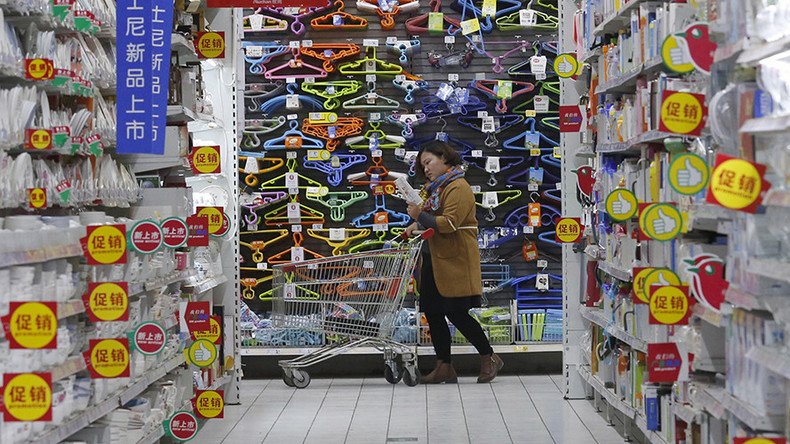Plummeting commodities saves Beijing $460bn a year

While a sharp drop in commodity prices is hitting resource-based economies hard, analysts suggest China has arguably become the biggest beneficiary.
Last year, China became the world's top buyer of crude oil and nearly every other commodity. According to calculations by Kenneth Courtis, former Asia vice chairman at Goldman Sachs Group, the world’s second biggest economy saves $320 billion on cheaper oil, and another $140 billion in metals, coal and agricultural produce.
This has allowed China to cut or keep steady prices of everything from utility bills and petrol prices to the cost of raw materials at plants, Bloomberg reports.
Keeping the money within the economy has also given Beijing a chance to continue the transformation from an industrial to a consumer-driven economy.
"It’s shown up in low consumer-price inflation and more stuff that households have been able to buy," Louis Kuijs, the head of Asia economics at Oxford Economics in Hong Kong and a former World Bank economist told Bloomberg. "Manufacturing companies would have had even worse profit developments if it had not been for those low commodity prices," he added.
Besides importing a record volume of oil in 2015, China also had record imports of iron ore, soybeans and copper concentrate. Paying less for the imports, Beijing saw a $594.5 billion trade surplus surge last year, which has softened the consequences of capital outflows.
READ MORE: China’s economic growth slowest in quarter century
"China is the great winner from the crash of commodity prices," said Courtis, the author of the calculations. "A significant portion of that windfall gain is being transferred to the domestic population," he added.













